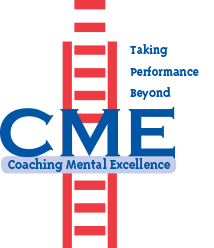
CME Sports Psychology
 The game is half physical, and the other 90% is mental.
The game is half physical, and the other 90% is mental.
– Yogi Berra
My first reason for undertaking the study of Sport Psychology was the (paraphrased) words from Yogi Berra noted above. Many doctors and athletes talk about the mind/body connection and about the mental game, but few understand it or attempt to use it in their lives. Using some simple performance enhancement tools in your practice might be the easiest way to improve as a physician or athlete. Such techniques can make your working life better and thus your entire lift better. The disconnect between the physical and mental aspects of performance might be especially true in the field of medicine, both in the way doctors and surgeons practice and in how they apply it to their patients.
An important aspect of sport psychology, and how it differs from general psychology, is that sport psychology concerns itself with what happens “between the lines” i.e. in the operating room, the clinic, the training room, on call, in the conference room, or on the field. The emphasis is placed on your working and playing life, not your inner life. It would be my hope, however, that once some aspects of your life are organized, other things will fall into place as well.
The second impetus for studying sport psychology came from my own experience in the fields of Orthopaedic Surgery, Sports Medicine, and athletics. I was often bumping up against psychological issues when returning patient to the field of play. This was not confined only to professional or collegiate athletes, but also appreciated in my “weekend warriors”. Giving someone a surgically repaired shoulder or knee is fine, but if they don’t return to work or to doing the things they love, the surgery is not much of a bargain. Everything may have felt great on the exam table in the office, so why are these athletes not out competing and enjoying themselves? Part of the problem was they were being held back by coaches, spouses, parents, misconceptions garnered from the sports pages, and their own confidence issues.
The third reason I became interested in the mind/body connection recovery in medicine was the performances I witnessed of fellow physicians. I learn more from visiting colleagues, in the Operating Room (OR) and in the office than I did from most meetings and lectures. In fact, what happens in the clinic or in the OR is often a far cry from what you hear about from a podium. But what makes one person a great doctor and another person less than great? What makes one person a gifted surgeon and another just acceptable, or worse, dangerous? Why do some doctors just seem to relate better to patients yet they don’t appear to be any more qualified than you are? What is more important: a surgeon’s performance during a triple bypass or a salesman’s performance selling a car?
